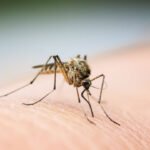New research into the health benefits of carrots is good news for supplement manufacturers, but bad news for those who produce supplements – which are unlikely to be effective.
Kirsten Brandt (Senior Lecturer at the Human Nutrition and Exercise Research Centre of Newcastle University) said in an interview with Agriland that the only people who will lose out from this research are those who produce supplements.
She added that she is pleased that the research may lead to an increase in carrot consumption, as it is beneficial for those who eat carrots to improve their health, and for those who grow carrots to increase their profits.
Carrots have a bunch of different compounds in them that have been studied for their health benefits, according to Newcastle University. One of them is beta carotene, which is what gives carrots their red-orange color.
It’s been around for a while that carrots can help protect you from cancer, but a lot of people thought it was because of the beta carotene in them. But after doing some research, it turns out that beta carotene isn’t actually good for cancer prevention.
How it started
After almost two decades of research and development, Brandt and her colleagues at Newcastle University discovered what was in carrots that was believed to reduce cancer risk by nearly a quarter, Brandt said.
“I was working with my colleague Lars Porsikeer Christensen on a study of ginseng, which is a herb used in traditional Chinese medicine,” Brandt said, “when he told me about the findings.”
I was working on these ginseng plants and reading research papers, and they were talking about polyacetylenes that have anti-cancer benefits in ginseng; they have the same compounds in ginseng as in carrots, but no one seems to care about the polyacetylene in carrots.
Brandt, who supervised the study, stated that it was her doctoral student Charles Ojobor who led the study and discovered the final results.
Brandt said that the research on those polyacetylenes involved experiments on rats and mice in which they were able to isolate the compounds individually.
As part of the study, researchers looked at almost 200 studies involving 4.7 million people. Brandt said the Covid pandemic gave them more time to do their research, so they were able to sit at the computer more.
Research results
The results of the study revealed that consuming five servings of carrots per week was associated with a 20% decrease in the incidence of cancer across a range of subgroups, including geographic region, exposure, and cancer type, as published in the peer-reviewed journal Critical Reviews in Foods Science and Nutrition.
The study also found that consuming only one serving a week still results in a significant reduction in the risk of developing the disease (4% less than those who do not consume the vegetable).
Lots of scientists have already seen the advantages of carrots, so it was no surprise that there was a lot of data to go into. We decided to look into the different types of cancer that can be caused by carrots, since they contain colourless polyacetylenes that have a big impact on cancer. Our study showed that people who ate five portions of carrots a week were 20% less likely to get cancer.











